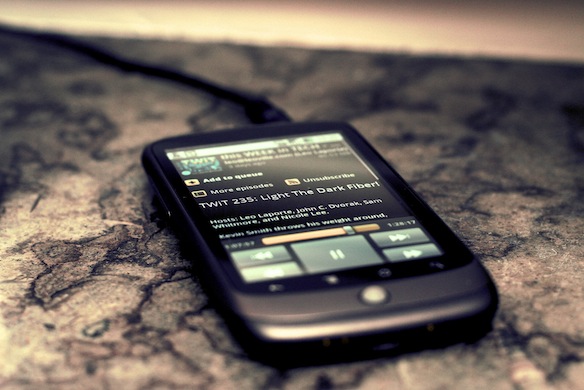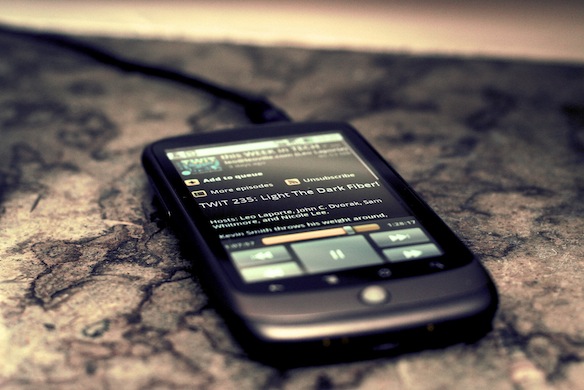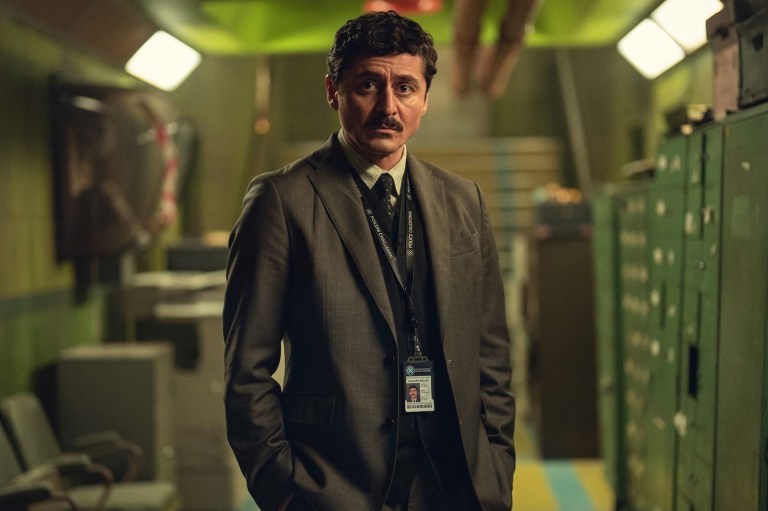
To Snoop Through Our Partner’s Texts Or Not To Snoop?
I’ve always mulled over its ethicality and it recently hit me that I may just be missing the point entirely. Because the point isn’t what you find when you snoop; the point is that you were driven to snoop in the first place.
By ![]() Rachel Hodin
Rachel Hodin

Snooping always felt like searching in dark corners for evidence, probably because that’s essentially what it is. But, evidence of what? And to what purpose? Perhaps I was hoping to find evidence of disloyalty. And perhaps I was, ultimately, looking for a concrete excuse to end the relationship. Either way, the urge to snoop is often indicative of a languishing relationship.
Discovering incriminating texts or phone calls in my exes’ phones always, in my mind, justified the snooping; it made snooping seem okay, warranted. At the very least, my actions felt much more justified compared to the times I didn’t find anything of concern. But the truth is, what we’re ultimately looking for when we snoop will not be found through snooping; more often than not, what we’re looking for is right under our nose.
In Edgar Allan Poe’s short story “The Purloined Letter”, one of the Queen’s precious letters is stolen and the Paris Police are on the hunt for it. They search relentlessly for the letter, only to discover that it was hidden in the least likely spot: in plain sight. Poe writes, “’But the more I reflected upon the daring, dashing, and discriminating ingenuity of D–…the more satisfied I became that, to conceal this letter, the Minister had resorted to the comprehensive and sagacious expedient of not attempting to conceal it at all.’” The story brings up a rather interesting point, one that does tend to be true to life: the fact that what you are usually looking for is right in front of you all along.
If I had taken the time to look at the conspicuous evidence right in front of me—that I am obviously unhappy in my relationship—there would be no need to snoop. Because what’s standing right in front of us will always provide us with more answers than any text could. Which brings up another crucial point: the intrinsic unreliability of text messages.
Even if the thing we’re looking for when we snoop isn’t standing right in front of us, it still won’t be found in text messages because texts are steeped in inaccuracy. Shakespeare’s Othello begins in “media res,” that is, in the middle of things. Immediately, we are dropped into the middle of a conversation between Roderigo and Iago without context. And I’ve always considered this a great analogy for texting. Throughout the play, as this technique is repeated, the effect becomes practically indistinguishable from the feeling of snooping. In both cases, we are given snippets of information that, together, can be easily misconstrued. In effect, our interpretation is fundamentally unreliable, as we are not given any context. And so to snoop through our partner’s texts with the intention of finding something incriminating is an inherently flawed approach, since what we find in texts will never be an accurate representation of reality.
David Foster Wallace, in his Kenyon Commencement address, spoke about having the will and the capacity to choose. He spoke of having the liberty to choose, say, whether we want to remain miserable, cranky and bitter towards the slow cashier and everyone in front of us in line at the grocery store; or, whether we want to think outside of the box, outside of this default bitter state and consider that perhaps the checkout lady is moving so slowly because she just had a miscarriage and is sore from the pain. He says we can choose to live life unconsciously—with, for example, a pervasive complacency and monotony, without inertia; in other words, settling in all facets of our lives. Or, he says, we can live life consciously—that is, not in this aforementioned unconscious, default state where our knee-jerk reaction is to blindly give the finger to the man who just cut us off—but rather more realistically and sympathetically.
And snooping is glaring evidence that we’re in an unconscious relationship. Because it means choosing not to address, human-to-human, person-to-person, what’s right in front of us. It’s choosing to, instead, look in places that are not only isolating, but also intrinsically fraudulent. Perhaps we do this to avoid coming face-to-face with our reality—that is, the dismal relationship we’re in. But that’s no way to live. ![]()











